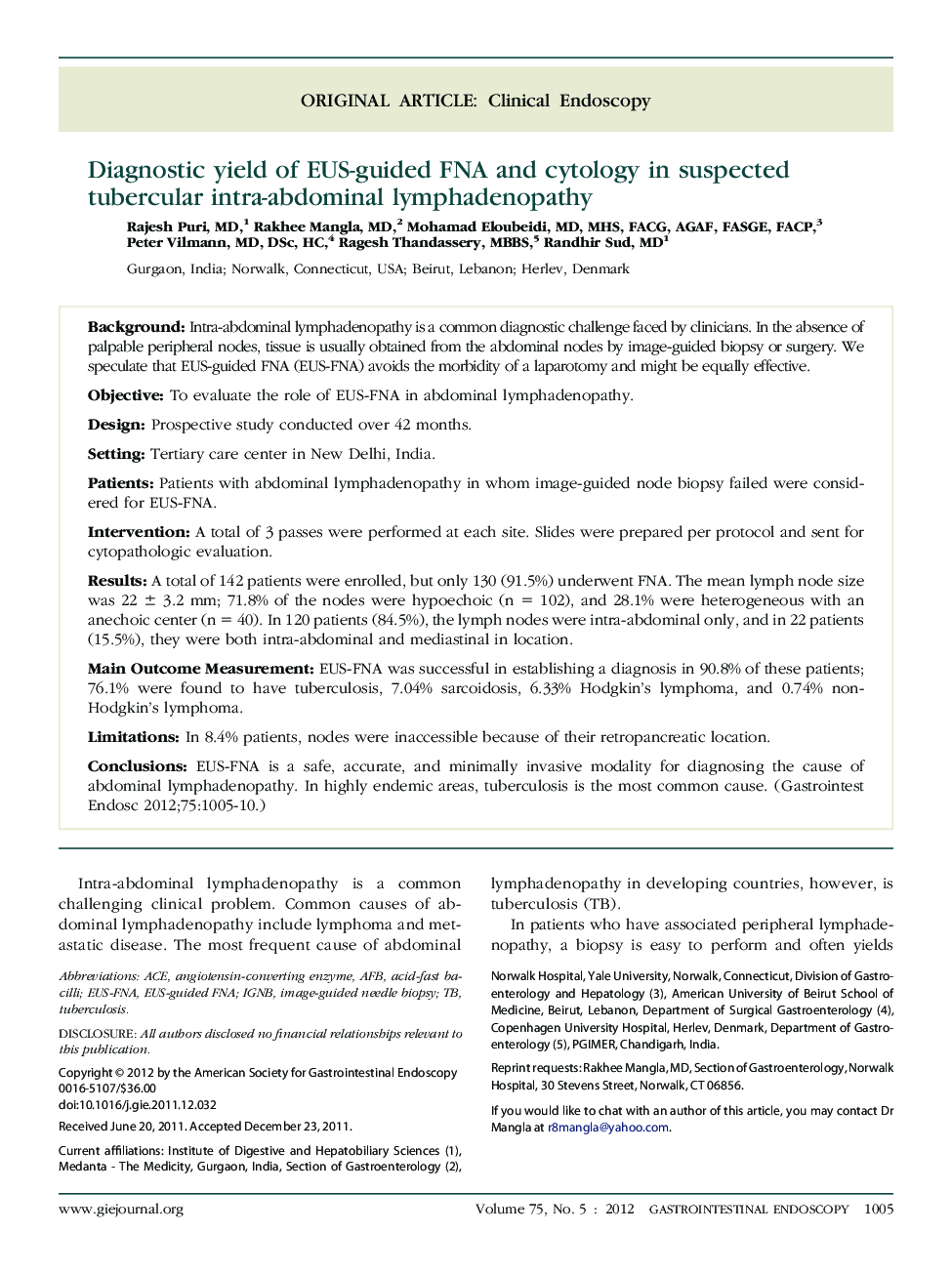| کد مقاله | کد نشریه | سال انتشار | مقاله انگلیسی | نسخه تمام متن |
|---|---|---|---|---|
| 3304945 | 1210345 | 2012 | 6 صفحه PDF | دانلود رایگان |

BackgroundIntra-abdominal lymphadenopathy is a common diagnostic challenge faced by clinicians. In the absence of palpable peripheral nodes, tissue is usually obtained from the abdominal nodes by image-guided biopsy or surgery. We speculate that EUS-guided FNA (EUS-FNA) avoids the morbidity of a laparotomy and might be equally effective.ObjectiveTo evaluate the role of EUS-FNA in abdominal lymphadenopathy.DesignProspective study conducted over 42 months.SettingTertiary care center in New Delhi, India.PatientsPatients with abdominal lymphadenopathy in whom image-guided node biopsy failed were considered for EUS-FNA.InterventionA total of 3 passes were performed at each site. Slides were prepared per protocol and sent for cytopathologic evaluation.ResultsA total of 142 patients were enrolled, but only 130 (91.5%) underwent FNA. The mean lymph node size was 22 ± 3.2 mm; 71.8% of the nodes were hypoechoic (n = 102), and 28.1% were heterogeneous with an anechoic center (n = 40). In 120 patients (84.5%), the lymph nodes were intra-abdominal only, and in 22 patients (15.5%), they were both intra-abdominal and mediastinal in location.Main Outcome MeasurementEUS-FNA was successful in establishing a diagnosis in 90.8% of these patients; 76.1% were found to have tuberculosis, 7.04% sarcoidosis, 6.33% Hodgkin's lymphoma, and 0.74% non-Hodgkin's lymphoma.LimitationsIn 8.4% patients, nodes were inaccessible because of their retropancreatic location.ConclusionsEUS-FNA is a safe, accurate, and minimally invasive modality for diagnosing the cause of abdominal lymphadenopathy. In highly endemic areas, tuberculosis is the most common cause.
Journal: Gastrointestinal Endoscopy - Volume 75, Issue 5, May 2012, Pages 1005–1010